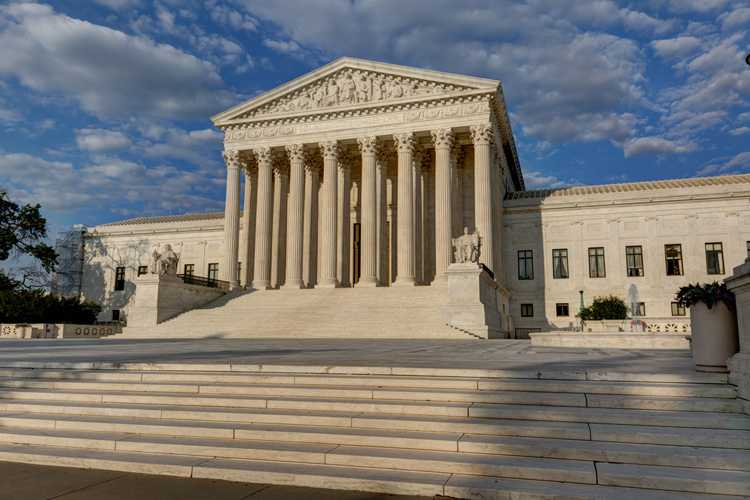ABA asks Supreme Court to review Alabama case involving fixed bail amounts

Image from Shutterstock.
The ABA on Monday asked the U.S. Supreme Court to grant a challenge to the bail system in Cullman County, Alabama, which primarily relies on a fixed schedule of cash bail amounts.
“Defendants who can afford bail are released typically within 90 minutes of arrest—no matter how likely they are to flee or pose a danger,” the ABA says in its amicus brief. “Arrestees who cannot afford the fixed-schedule bail amounts are jailed for at least three days and often much longer, pending an initial appearance.
“While defendants with means walk free immediately, poor arrestees remain detained until and unless they prove—without counsel or any opportunity to present evidence or cross-examine witnesses—that they are neither a flight risk nor a danger to others.”
The ABA stresses the significance of the Supreme Court’s guidance on this “critical constitutional issue,” saying it is “long overdue.”
“Absence of physical restraint has always been a core liberty interest protected by the Due Process Clause,” the association says in its amicus brief. “Being arrested, prior to any determination of guilt, does not extinguish that interest.”
An ABA press release is here.
Bradley Hester, the plaintiff in the case, was arrested in August 2017 for possession of drug paraphernalia. Because he could not afford to post the required $1,000 bond, he was held for two days before a magistrate judge could conduct his initial appearance. He remained in detention afterward because he could not afford to pay the amount.
The district court sided with Hester, finding Cullman County’s bail system unlawfully discriminates by treating defendants who are indigent differently than defendants with means. The 11th U.S. Circuit Court of Appeals at Atlanta, however, said the lower court erred in its decision and reinstated the county’s bail system in July 2022.
“It may go without saying, but the Equal Protection Clause does not mandate that the indigent receive preferential treatment,” the 11th Circuit held. “Cullman County, however, has chosen to place all arrestees on equal footing: all are released as soon as they are able to show that they are not a flight risk or danger to the community.
“The affluent satisfy this requirement by posting bail; the indigent do so by making what, in the eyes of the county, is an equal showing—appearing at a hearing where a judge determines their indigency, their danger level and flight risk.”
Among the arguments in its amicus brief, the ABA says Cullman County’s bail system “flouts half a century” of its pretrial detention and bail policies and standards, including the ABA Standards for Criminal Justice for Pretrial Release.
The third and most recent edition of these standards, which was adopted in 2002, counsels jurisdictions to impose monetary release conditions only after considering the individual circumstances of each defendant. Additionally, according to the association, a defendant’s finances should never prevent his or her release.
The ABA contends that Cullman County’s bail system could only be constitutional and consistent with its standards if a compelling interest justifies detention. However, the association says, the county’s “two-tier system” contradicts any possible interest.
“Although Cullman County claims that it must detain defendants to assess dangerousness and flight risk, it requires that assessment only for indigent defendants,” the ABA says in its amicus brief.
“As the district court found, ‘[t]he system is discriminatory: not all criminal defendants who pose a real and present danger to the public are indigent, but Cullman County detains only indigent criminal defendants who pose a real and present danger to the public. Dangerous defendants with means enjoy pretrial liberty.’”
The case is Hester v. Gentry. Zuckerman Spaeder filed the brief pro bono on the ABA’s behalf.



